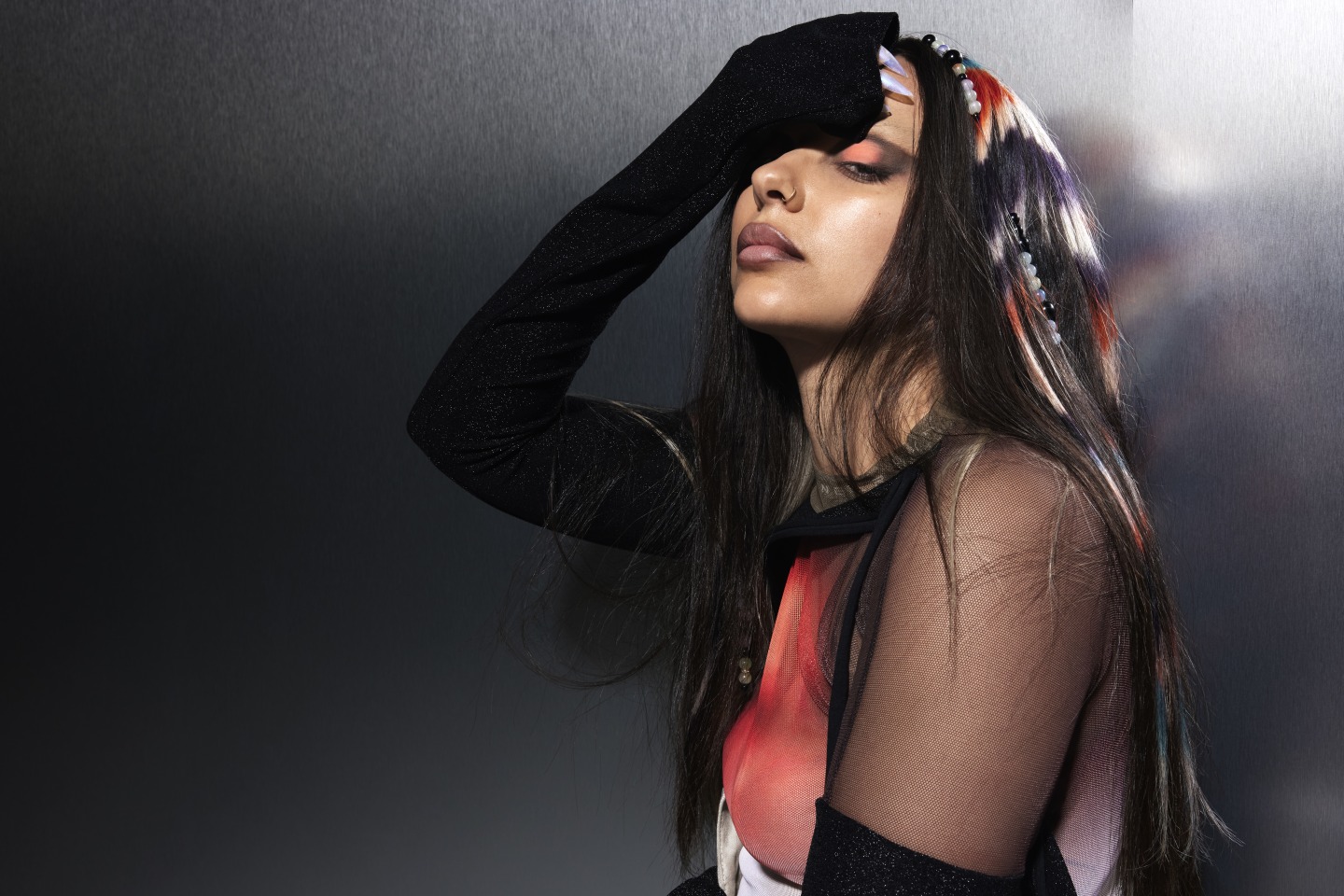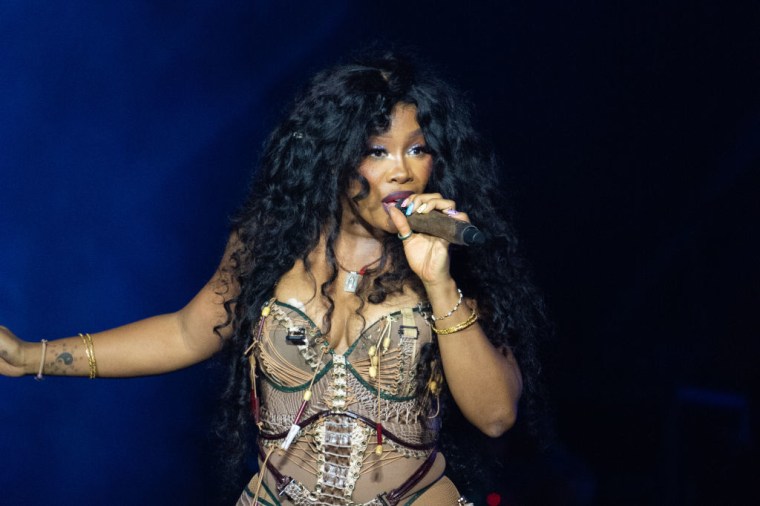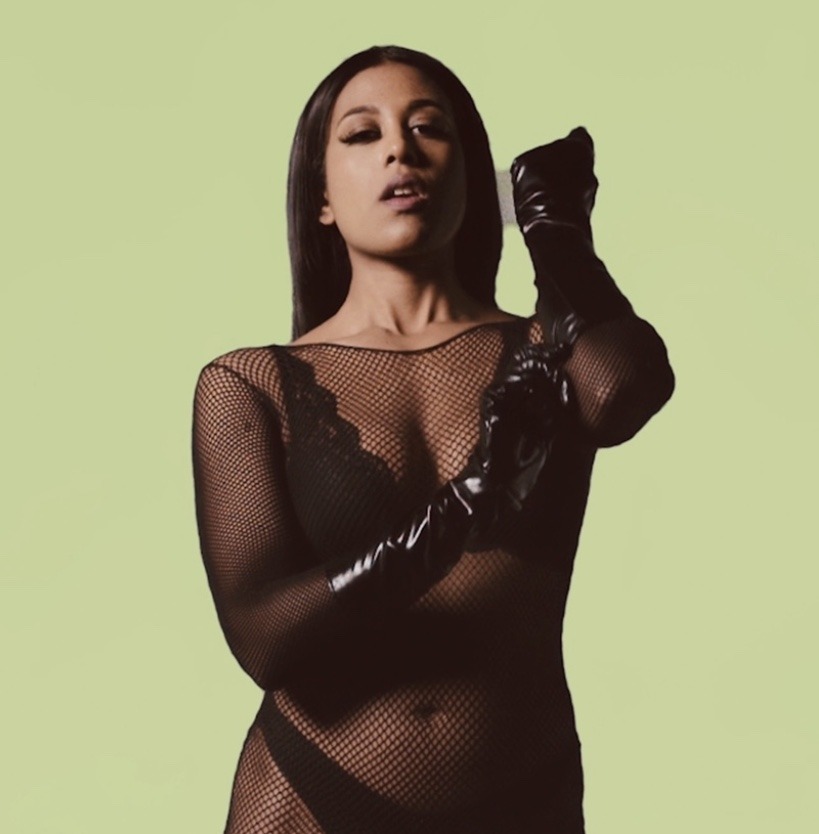That’s Showbiz Baby!”>
Conor Cunningham
Jade Thirlwall is sitting in front of an ocean blue mosaic in her south London home and thinking back to the night in 2011 when her life changed forever. It was the finale of the U.K. ‘s The X Factor and 18-year-old JADE, one quarter of Little Mix, had just been named the season’s winner. But even with almost guaranteed success ahead of her, Thirlwall wasn’t entirely swept off her feet.
“I remember the conflicting feeling of, ‘This is so amazing’ and being terrified of what it actually meant,” she says 14 years later. What it actually meant quickly came into focus. Endless meetings with managers and lawyers and a schedule that began before dawn the day after the finale was broadcast. “We went backstage and saw our families for five minutes and then I didn’t see them until Christmas.”
What followed was even more intense: Five albums in six years, recording, touring, numerous awards, but also online abuse, exhaustion, lack of privacy, and the return of an eating disorder.
It’s this tension between the massive highs and soul-crushing lows that informs Thirlwall’s solo debut, That’s Showbiz Baby!. Across the wildly unpredictable album she wrestles with the concept of being addicted to stardom while also feeling sick of the machinations, wrapped up in songs that Frankenstein soul, disco, hyperpop, and the Clubland Classics-era trance music beloved on the dancefloors of her youth. It’s a solo album in the truest sense: It establishes one quarter of a group rarely seen apart as a true individual.
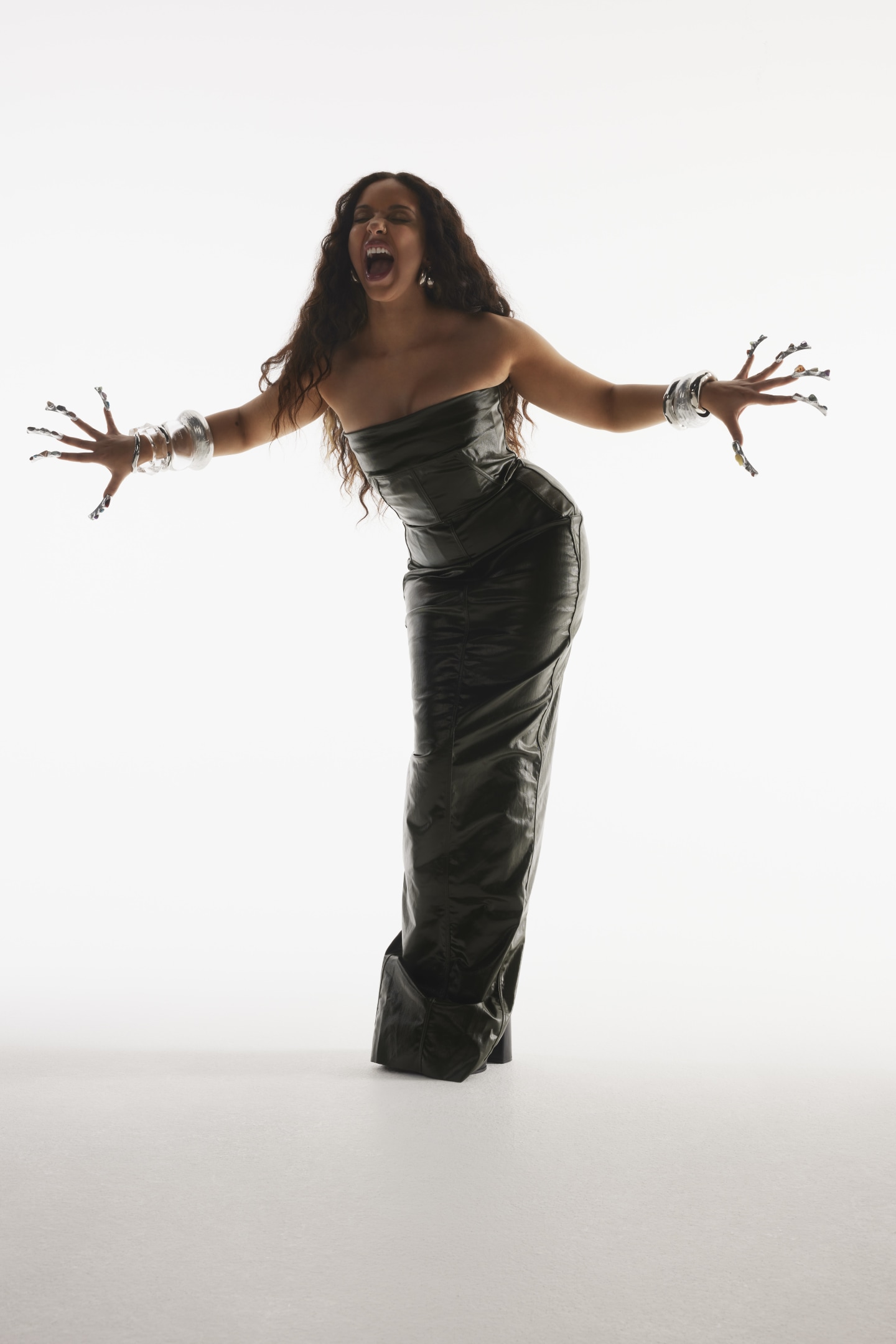 That’s Showbiz Baby!”>
That’s Showbiz Baby!”>
Conor Cunningham
Little Mix, which also included Leigh-Ann Pinnock, Perrie Edwards, and Jessie Nelson, made their rapid ascent look easy. Their first two albums landed in the top 10 of the Billboard chart while at home they secured five hooky and uplifting no.1 singles, including their biggest hit “Shout Out To My Ex,” amassing a legion of girls and gays into their “Mixer” fan army. The biggest British girl group of their generation decided to take a break in 2020 and played their final show in London a year later. It was about as smooth an exit, temporary or otherwise, as a group could have. Yet, for Thirlwall, the landing was still a bumpy one.
“I did anything to avoid sitting with my thoughts,” she says, after the goodbye tour finished, and admits she was the member most reluctant to call time on the group. “I was so in love with what we stood for and knew there’d be a gap when we left.”
Staring at a blank diary for the first time in a decade she began thinking about all the things she loved about being a pop star and what she didn’t like, curious about why she felt so drawn to a lifestyle that often left her feeling expendable and uncomfortable. As she traveled to Los Angeles to begin putting this all to song, she faced a mountain of expectations for her solo career and insecurity about her skill.
“I remember being terrified because I was starting again,” she says. “I had some hellish sessions with people that I couldn’t stand. There were a couple of producers that I literally waited at their house all day and they just didn’t turn up. I had to remind myself of who I am. I am a great songwriter but I had maybe forgotten [that].”
It seemed like the perfect first single. Thirlwall’s DNA was all over it and it was warmly received by both critics and fans alike, later beating Charli xcx and Dua Lipa for Best Pop Act at the 2025 Brit Awards. But soon Thirlwall felt the old expectations creeping back in. “I deliberately created a song that wasn’t meant to be huge, in the hopes of alleviating myself of the pressure,” she says. “So when it did really well, I was like, ‘Oh, fuck.’”
The reality is there’s never going to be another ‘Angel of My Dreams.’ It’s always going to be that bitch of a song.
The old Thirlwall, the one who tolerated creepy paparazzi and thought nothing of starting work at 3 a.m, would have wondered where the next hit was going to come from. Now in her 30s and able to define her own vision of success, she can temper her expectations.
“The reality is there’s never going to be another ‘Angel of My Dreams,’” she concedes. “It’s always going to be that bitch of a song.”
This is false modesty, though. That’s Showbiz Baby! is full of equally chaotic dance pop songs that layer glitz on top of heartstring-pulling sentiment. The Studio 54-ready anthem “Unconditional” was written at a time when her mom, diagnosed with lupus, “was almost on her deathbed in hospital.”
Thirlwall finds it darkly amusing that she wrote this “really deep” song “but then it’s got this fabulous disco vibe to it,” she laughs. Humor runs throughout the album, from “Natural Disaster,” a campy “bulldozer of a ballad” about living with a toxic partner, to the taut and funky “Headache” (“literally a song about me being a pre-menstrual bitch to Jordan”).
“This album is me owning my truth, good and bad,” she says. “There’s always a level of tongue-in-cheekness because that is my personality and that’s who I am as an artist. I don’t want to be an overly serious solo artist. And I do sort of laugh at my trauma.”
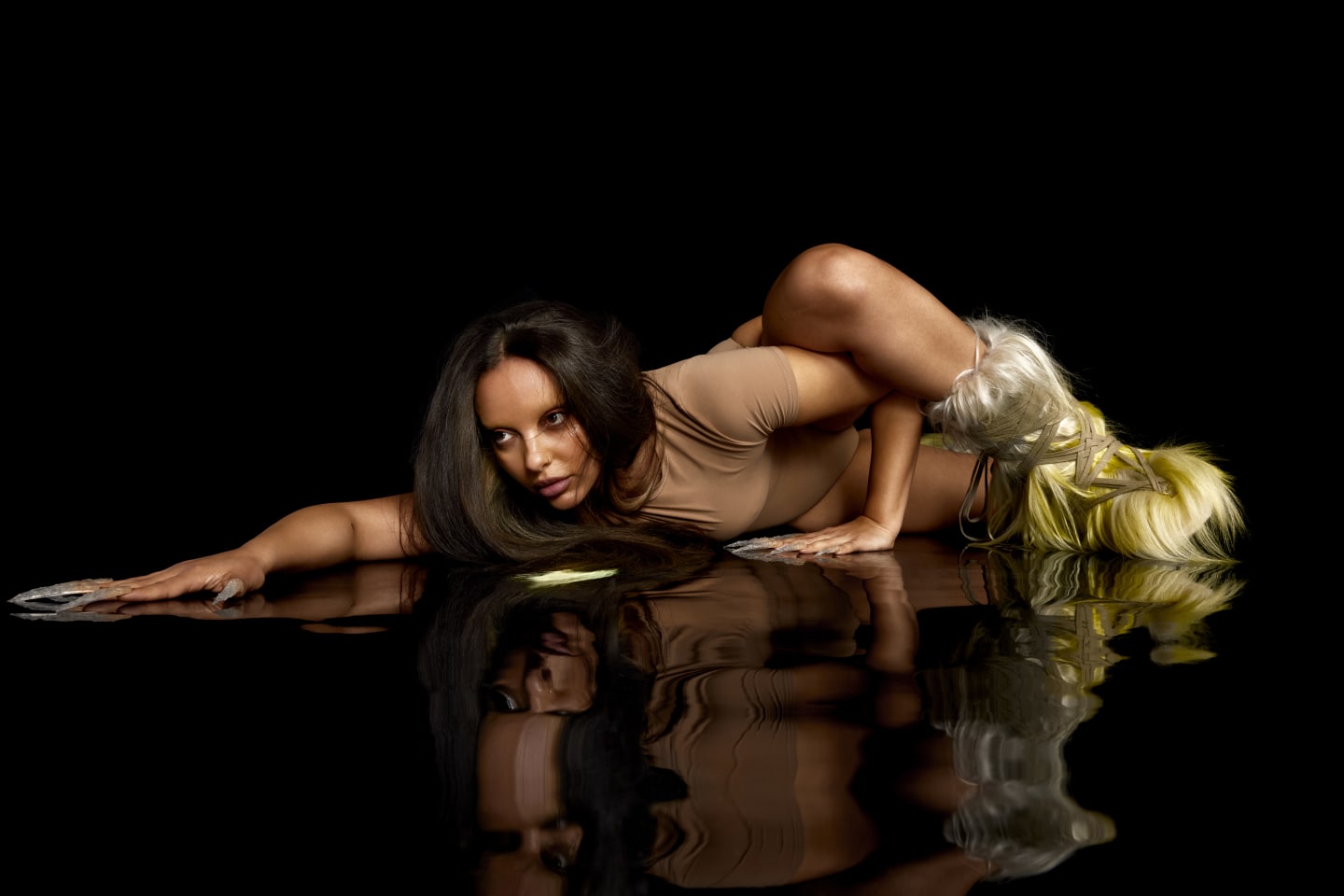 That’s Showbiz Baby!”>
That’s Showbiz Baby!”>
After 14 years in the pop world Thirlwall has seen her fair share of changes in the industry, and she says that the community right now is in a better, less competitive place. She cites Chappell Roan as a heartening indication that the mainstream has widened to accept a wider range of voices.
“I adore her as an artist and everything she stands for,” she says, recalling an interaction she had with Roan while opening for her on tour this past summer. The pair met backstage but Thirlwall, who says she’s more introverted and socially awkward offstage than people expect, strained to make small talk. To her surprise, Roan said she felt the same way. “And I was like, ‘What a relief that I’m not the only person that feels like that. That’s what I have to remember, we’re all just trying our best to show people that we’re worthy of a seat at the table.”
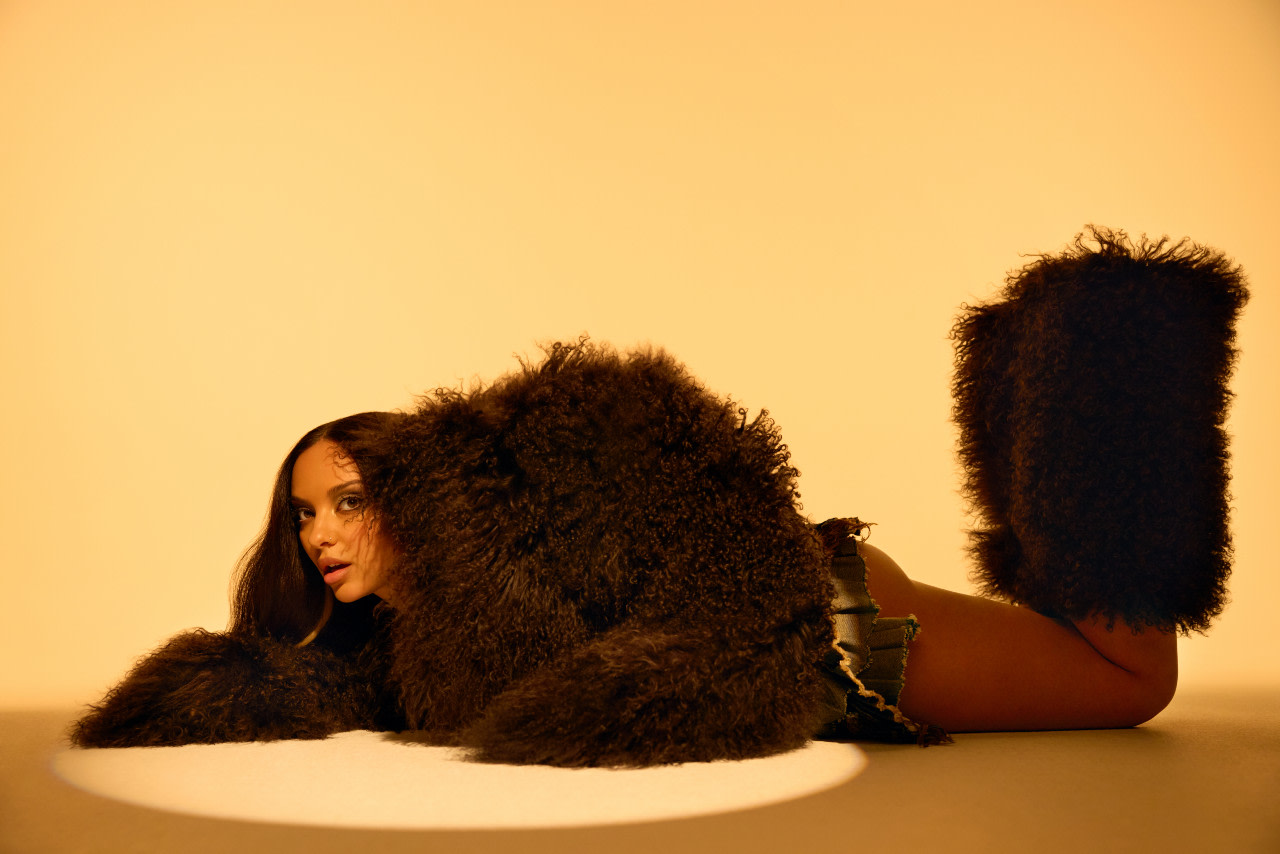 That’s Showbiz Baby!”>
That’s Showbiz Baby!”>
Conor Cunningham
Another thing Thirlwall has brought into her solo era is an outspokenness on political and social issues. During performances of her song “FUFN (Fuck You For Now)”, including at this summer’s Glastonbury, she incorporated a segment where she reeled off a list of injustices, including transphobia, cuts to the welfare state, silencing protests, and “justifying genocide.” The move turned her into a target for the same right-wing British tabloids whose paparazzi used to force themselves into Little Mix’s late night Ubers. Thirlwall has no regrets.
“I personally think you can’t not speak out, or at least have some sort of moral stance, because it’s right in front of us,” she says about both the ongoing war in Gaza and the hateful rhetoric on immigration spreading across the globe. “As someone of Yemeni heritage, my granddad was an immigrant, so I can’t not feel affected by that. I have always been outspoken and I think it’s important for me to show my fans that I’m not scared to do so.”
“How dare I even consider the idea that anything I’ve done this year is a flop? If anything, that idea creeping in just underlines my belief that pop is a bit of a nightmare.”
Thirlwall admits that people in the pop world have reached out and warned her to “be careful,” because when they did something similar “big opportunities” were taken away. I ask her if, in an age where artists are removing their music from streaming services and pulling out of lucrative festivals that don’t align with their politics, she, too, has done similar things.
“I turned down a pretty huge brand endorsement deal due to their involvement with funding the IDF,” she says, declining to name the brand. “There was part of me that considered taking the money and putting it towards a pro-Palestinian cause, but then I’m still sort of promoting that brand and that doesn’t make sense, either.”
She admits that being principled in the pop world is a high-wire balancing act and that accusations of hypocrisy are inevitable when “everything’s corrupt.” Ultimately, it’s all about intention. “I think my job is to create amazing, poptastic, fab music as escapism, whilst also standing up for what’s right. That’s the mark I want to leave.”
Thirlwall says that her brain rarely stops whirring over the big and small parts of being a pop star, so much so that it keeps her up at night. The night before, in bed, she was hit by a wave of release week anxiety.
“I was saying, ‘What if it flops? And Jordan [Stephens, Thirlwall’s boyfriend] was like, ‘What even is a flop? Literally, who cares anymore?’ He was right. I’ve reached so many milestones this year that I didn’t expect to happen so quickly,” she says. “How dare I even consider the idea that anything I’ve done this year is a flop? If anything, that idea creeping in just underlines my belief that pop is a bit of a nightmare.”
Still, even when it’s at its worst, she can’t quit it. “One of the best things about being part of this industry is when I’m in a fitting and nobody has had any sleep and my stylists are pulling me apart and someone’s at my hair and someone’s doing my makeup and we’re all really stressed and we’ve got five minutes to be on set. It’s in those moments where I’m like, I fucking love this.”
That, baby, is showbiz.

